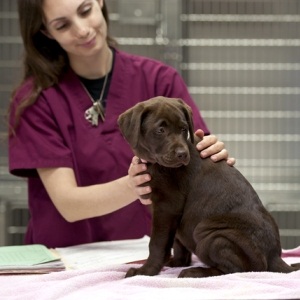
The scourge of cancer can strike peoples' four-legged friends, too, and an expert offers tips to spot the disease early so treatments can work best.
Any breed vulnerable
As in humans, age is a big factor in cancer, said Mary Lynn Higginbotham, assistant professor of oncology at the College of Veterinary Medicine, Kansas State University.
She said that cancers hit about half of dogs and a third of cats aged 10 years and older, and any breed is vulnerable.
"Osteosarcomas are the primary bone tumours we see in the limbs, most commonly in the front legs of large dog breeds like Great Danes, Mastiffs, Labrador Retrievers and Rottweilers," she noted.
Spotting cancer early is key. Some symptoms that might indicate your pet has cancer include:
- An overall change in behaviour, or lethargy/loss of stamina.
- Lumps or bumps that grow or change; wounds that won't heal (such as on the skin of the face or the toe); persistent or recurrent lameness; bleeding from an orifice, such as the mouth, nose or rectum.
- Poor appetite, unexplained weight loss, difficulty eating or swallowing.
- Unpleasant odor, especially from the mouth.
- Trouble with breathing or bathroom issues, such as straining to urinate or to have a bowel movement.
If cancer is the diagnosis, treatment options for dogs and cats are available, and just as in people include surgery, radiation therapy, chemotherapy and immunotherapy.
On the plus side, these therapies typically have fewer side effects in pets than in people, Higginbotham said.
"The majority of our drugs used for chemotherapy are the same drugs used in people, but we are very careful about the dose," she said in a university news release. "We use the amount of dose needed to maximize the response, yet limit the dose so we can diminish the potential for side effects as much as possible," she explained.
"Overall, less than 20 percent of our patients actually need supportive therapy because of a side effect from the treatment," Higginbotham said. "The majority of animals we treat with chemotherapy or radiation therapy have very minimal side effects and those are usually short term."
Read more:
New cancer treatment for dogs
Gene therapy helps dogs
Pet emergencies
Image: Vet and pet from Shutterstock




 Publications
Publications
 Partners
Partners










